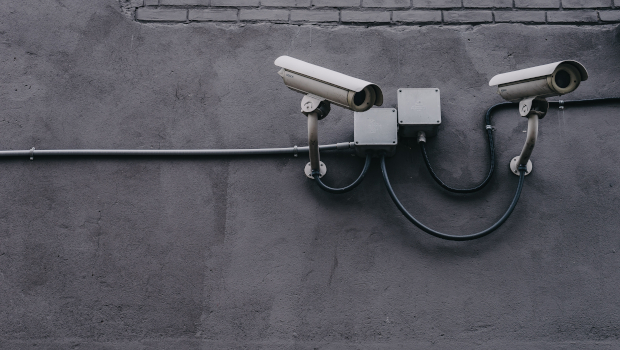
Information wants to be free but are you?
Video conferencing software Zoom was last week given a, mostly anyway, clean bill of health by the Dept of Justice & Security in the Netherlands. Its Data Protection Impact Assessment (DPIA) noted some risk as as a result of light touch US regulation, but its commitment to adopting end-to-end and processing all personal data belonging to EU citizens in European data centres by the end of 2022 showed the company was taking digital rights seriously.
Good news for Zoom and its users. Online privacy matters because while working from home is driving information technology, and in particular networking, ever deeper into our lives, the ability to communicate privately remains essential for individuals and businesses alike.
And yet, it was not so long ago that digital privacy, whether in the form of online anonymity or private digital communications, was under fire as an engine of misinformation. Today, the pendulum has seemingly swung the other way, and the ability to communicate freely has risen back up the agenda.
Internet ideology
It was a genuine break, and probably inevitable given the penetration of the Internet into everyday life. No longer an electronic frontier home only to pioneers, scientists and tech enthusiasts, the founding ideology of the Internet was no longer fit for purpose in an era when the Internet is the sea in which almost all of humanity swims.
In the wake of Britain’s Brexit vote and the election of Donald Trump as US president, the Internet, and in particular private and anonymous communications (which are subtly different issues often bundled together), were held responsible for all manner of ills. At times it can seem like anything anyone does not like can be blamed on ‘the Internet’, though the rise of the likes of the the online conspiracy theory QAnon has done little to make the case for leaving people to communicate freely online.
Whether persuaded by disinformation or simply stewing in their own juices, the spreading of strange ideas online is a real and observable phenomenon, and one that has animated concerns from both policymakers and the public alike. Today, however, the picture is becoming a little more nuanced. While we are not in the throes of excitement seen during the Arab Spring, there is a sense abroad, once again, that communication matters.
The vacillation stems largely from events in the news. Russia’s invasion of Ukraine has seen the importance of the Internet as a communications medium return to the fore. Despite ongoing concern about disinformation, the positive side of communication is on display in the form of getting news out of Ukraine and spread as a show of solidarity.
For its part, Russia has been quick to clamp down. A Moscow court recently banned services provided by Meta (formerly Facebook), accusing the social media giant of carrying out “extremist activities”. And just like that they were gone: Facebook and Instagram are no longer available in Russia. WhatsApp, however, which is also owned by Meta, has survived to ping another day. The move is curious because WhatsApp was previously at the centre of allegations of the spread of disinformation, notably in Brazil. Though it is impossible to know for sure, the Russian government presumably spared WhatsApp the axe simply due to fear of a public backlash in light of how deeply instant messaging has embedded itself in daily life.
The good and the bad
Whatever about Russia, we in the West have clearly not heard the last of misinformation. Whether the issue is the coronavirus pandemic, the war in Ukraine or anything else, the Internet is not blameless in the spread of falsehood – but nor is it the root cause. An increasingly fragmented society has meant that all manner of grievances, both real and imagined, are nurtured before eventually finding expression online, hence the frequent calls for crackdowns.
However, with data analytics encroaching on everyday life, and doing so rather profitably for the Internet giants, a grown-up discussion is needed more than ever. Information may or may not want to be free, but we would do well to debate how the various actors in society use and abuse it.
TJ McIntyre, professor at the Sutherland school of law at University College Dublin and chair of Digital Rights Ireland, said there was confusion around the distinction between anonymity and privacy.
“I think the misinformation-slash-disinformation issue has confused the matter somewhat because, previously, we used to look at the distinction between private communications and publicly-facing websites,” he said.
Indeed, where to draw the line can be trickier than it at first seems, and apps like WhatApp and Telegram exist between the two.
“An unhelpful aspect of this is what it means for private communications on the same platform. In a sense, it’s a historical accident that the two overlap,” he said.
The problem of misinformation may even be insoluble – if approached in purely technical or technological matter – because it is not just a question of posting lies. After all, falsehoods would fall flat were it not for the fact that they find a willing audience.
We should not be blind to the use and misuse of the Internet, nor to the fact that it, like everything else, is properly subject to the rule of law but social problems – such as a yawning wealth gap – that are the root causes of our disaffection will no more be fixed by gagging people than they will by laying more fibre optic cables. In the meantime, whether it is online trolling or tidal waves of lies, perhaps we will just have to take the bad with the good.





Subscribers 0
Fans 0
Followers 0
Followers